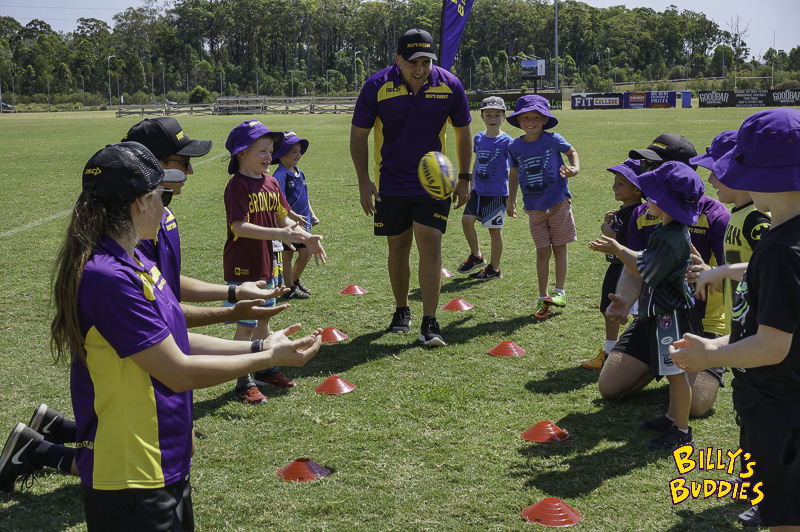The Importance of Play Based Learning
The Early Years Learning Framework (EYLF) plays a key role in the development and frequent revision of the Billy’s Buddies Program.
As an overview, the EYLF is made up of 3 integrated ideas that stand together to form an approach to child education and development. These ideas, Being Belonging and Becoming are built on learning outcomes, principles and practices.
The most widespread practice of the EYLF is ‘learning through play’ and, as a children’s sporting program, it is obvious that Billy’s Buddies promotes play-based learning. The tricky part to this is that play can be defined in many ways.
If I asked each of our Coaches, Buddies and their families to define play in less than 5 words, I can almost guarantee that each answer will be slightly different. This is because play means different things to different people.
The EYLF identifies play as ‘a context for learning through which children organise and make sense of their social worlds, as they engage actively with people, objects and representations’ (ELYF, 2009, p.46).
In consideration of the above, we must adopt the 5 key learning outcomes to ensure our Sessions are effectively meeting the EYLF identity of play-based learning. These 5 learning outcomes are:
- Children have a strong sense of identity;
- Children are connected with and contribute to their world;
- Children have a strong sense of wellbeing;
- Children are confident and involved learners; and,
- Children are effective communicators.
By incorporating different themes into our weekly Sessions, the children are able to identify and connect with the activities through something that is already familiar to their social world.
Role reversal is also something that we practice regularly. By letting the children run a specific activity instead of the Coach, it allows them to communicate not only what they have learnt but also changes the way they get involved.
These are just a couple of examples that outline Billy’s Buddies’ alignment with the EYLF.
Research from the Early Childhood Australia publication indicates that play influences the structural design of the brain. They explain that, “children who engage in quality play experiences are more likely to have well-developed memory skills, language development, and are able to regulate their behaviour, leading to enhanced school adjustment and academic learning”.
How do you define play?
Alexandra Herrmann


